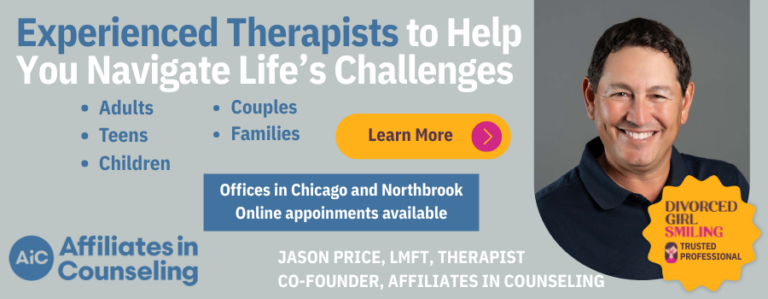Divorce is often identified as the second most stressful life event we may experience, the first being death of a loved one. At a minimum divorce is challenging and stressful and often, it can be a devastating nightmare. Divorce is a time of loss, transition and often includes difficult feelings such as anger, worry and despair. Fortunately, there is a secret weapon to help you throughout the divorce process: practicing mindfulness and meditation.
You may not realize that you already possess this secret weapon. Mindfulness is a superpower that is always available to you, is free and is easy to learn. It’s never too late to start practicing mindfulness and meditation and the practice does not have to be time consuming or add to your burdens. Even a moment or micro-moment of mindfulness is beneficial and help combat the stress and emotional overwhelm.
Mindfulness is a tool that can help you cope with emotions (including out of control ones!) and with the pain of a costly and frustrating divorce. If you are facing a separation or divorce (or other major setbacks in life), practicing mindfulness and meditation can help you find a sense of calm, and even optimism in the midst of the trauma or crisis.
From a psychological standpoint, mindfulness is a quality and the act of simply paying attention with an attitude of curiosity, kindness and nonjudgement. Mindfulness is one aspect of meditation. Meditation requires concentration, is a practice and/or structured activity that requires engagement and discipline. What makes mindfulness different is that mindfulness is the basic human ability (and practice of) waking up to the immediacy of whatever is arising in us at a given moment. This is accomplished by simply paying attention to where your mind is, what is happening in your emotions, energy or your body and any thought, feeling or behavioral patterns you may notice.
Throughout the process of divorce, emotions can run wild. Mindfulness can help you notice automatic pilot modes of thinking and foster your ability to take a step back from your thoughts, feelings and emotions, so you can be more responsive and less reactive. Mindfulness fosters a more balanced response to painful and difficult experiences so you can respond rationally and objectively. Mindfulness provides you the tools to cope with frustrations of the process of divorce through emotional flexibility, improved emotional regulation and management and decreased rumination.
Emotional processing is how we experience, make sense of,and integrate our emotions into our lives. When you have difficulty regulating your feelings and emotions, particularly difficult or negative ones, that is known as emotional dysregulation. This can look different in different people, however it may present as difficulty controlling your emotions, overwhelm, rumination, anxiety, depression or self-damaging behaviors.
With a lot of patience and kindness, mindfulness can support us in processing all our emotions in a productive way, including the difficult ones. Mindfulness is also associated with improvement in emotional regulation. Emotional regulation is the ability to regulate our emotions as needed, with flexibility and in response to the everchanging demands of our lives and, in a way that is socially and culturally tolerable. Mindfulness applied to emotional regulation can improve help us foster greater adaptability and resilience making our emotional regulation more flexible (Kobylińska & Kusev, 2019).
Emotional exhaustion or burnout is not only a common reason for getting divorced, it is a common symptom of individuals going through a divorce. As you improve your emotion regulation flexibility, you create a buffer against, and decrease the chances of burnout!
Emotional flexibility is the ability to effectively manage ones emotions in response to the changes in context and environment.
Different ways in which we regulate include: “accepting…distracting, criticizing yourself, worrying about the future, ruminating about the past, getting stuck in obsessive thoughts, engaging in emotional eating, using substances”, and so on (Aldo, 2014). According to the Mayo Clinic emotional exhaustion is “when stress begins to accumulate from negative or challenging events in life that just keep coming, you can find yourself in a state of feeling emotionally worn out and drained” (Emotional Exhaustion During Times of Unrest, 2023). Mindfulness can help you with your emotional drain and burnout.
Now that you understand the many different ways practicing mindfulness and meditation can be helpful throughout the divorce process, where do you begin?
I recommend starting with mindfulness rather than meditation. It can be integrated into life easily and with very little effort and time commitment. There are many ways to be mindful. All that is required is a bit of attention, patience, self-compassion, creativity and stick-to-it-ness. There are loads of books, video’s, podcasts and apps that are available to help us at any stage of our mindfulness journey. But how do you sort through the overwhelming amount of information to get to some basics?
As a psychotherapist, when I introduce clients to a simple mindfulness practice, I often begin with mindfulness in daily life. I have clients ask themselves “what is something I do daily(ish), that I enjoy doing or feel neutral about?” It is best to start with an activity/experience that is relatively short in duration. It can be something that lasts only a few seconds, for up to a few minutes. It can be anything from making or drinking your morning coffee/tea, washing your face, hugging your child or petting your dog/cat or walking from your car to your office, you get the picture. Most likely while you are engaging in that activity, you are probably, usually distracted a lot of the time.
For example, while petting your dog/cat, you might be thinking about how stressful the day was and how glad you are to be home, or what is next is on your agenda for the day/night. Once you have identified the activity, simply, mindfully, pay close attention to the direct experience of whatever activity/experience you are engaging in, while maintaining a peripheral awareness. Gently bring your attention, to gently focus on the activity or experience in the immediate moment. If you get distracted, with openness, curiosity and kindness bring your attention back to the identified activity. When you finish the practice for the allotted time, celebrate! Celebrate the gift of the moments of mindfulness you gave to yourself!
A few tips to get you started:
1. The best mindfulness techniques/practices are the ones you will actually engage in!!
2. Choose mindfulness techniques/practices that work for you and that will stick!
3. Mindfulness practice and not perfection.
4. Mindfulness is not thought stopping. The mind will think (that’s its job!). Gently bring yourself back to the practice, when you get distracted. And you will get distracted a lot!
5. Be kind and compassionate with yourself. Always.
6. A few recommendations for beginners (but are also great for experienced practitioners):
- mindful breathing
- body scans
- mindfulness of the senses
- mindfulness in everyday life.
Frequency and duration? Mindfulness is both an aspiration and a goal. If the aspiration is to live life more mindfully (and reap the benefits), then the immediate goal might be to practice some form of mindfulness 1-2 times a day. When you are first starting out with mindfulness — more repetition with a shorter duration, is better than a single session/practice. Therefore, it would be more effective to be mindful for 1 minute three times a day, than 3 minutes once a day. Make sense?
To understand and reap the most benefits of mindfulness its helpful to be aware that mindfulness utilizes both attention and awareness.
Attention is the act of utilizing your consciousness to focus on a particular object. Awareness is the ground that attention exists within. Awareness is our minds ability to process a barrage of various forms of stimuli or date, often without us even knowing it.
When first starting with mindfulness, about 20-30% of your attention will focus on direct experience (such as the petting the cat, or washing your face), and the remaining cognitive power can rest/relax in awareness.
Mindfulness can help you decrease stress and overwhelm, think more clearly to make better choices, foster greater peace and increase your overall wellbeing. It can foster your ability to direct your attention (and energy) where you want and need it the most. It can even help you find a route to future happiness. Mindfulness is a gift that you want, need and keeps on giving!
REFERENCES
Aldo, A. A., Ph. D. (2014, August 14). Being Emotionally flexible: A look at the science behind emotional flexibility. Psychology Today. Retrieved March 11, 2024, from https://www.psychologytoday.com/us/blog/sweet-emotion/201408/being-emotionally-flexible
Emotional exhaustion during times of unrest. (2023, July 13). Mayo Clinic Health System. https://www.mayoclinichealthsystem.org/hometown-health/speaking-of-health/emotional-exhaustion-during-times-of-unrest
Fan, J., Li, W., Lin, M., Li, X., & Deng, X. (2023). Effects of mindfulness and fatigue on emotional processing: an event-related potentials study. Frontiers in behavioral neuroscience, 17, 1175067. https://doi.org/10.3389/fnbeh.2023.1175067
Kobylińska, D., & Kusev, P. (2019). Flexible Emotion Regulation: How situational demands and individual differences influence the effectiveness of regulatory strategies. Frontiers in Psychology, 10. https://doi.org/10.3389/fpsyg.2019.00072
Sarabia-Cobo C, Pérez V, de Lorena P, Fernández-Rodríguez Á, González-López JR, González-Vaca J. (2021). Burnout, Compassion Fatigue and Psychological Flexibility among Geriatric Nurses: A Multicenter Study in Spain. International Journal of Environmental Research and Public Health. 2021; 18(14):7560. https://doi.org/10.3390/ijerph18147560





















